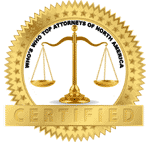How to Write a Witness Statement After a Crash
A properly written witness statement could play a pivotal role in helping car accident victims to recover damages. An eyewitness may have knowledge about the accident that is not available in any other pieces of evidence. A witness statement puts observations in writing. A successful witness statement should include the witness’s contact information, details of the accident, information about injuries and property damage, and a signature.
Witness’s Name and Contact Information
A witness statement should include the full legal name of the person making the statement. It should also contain important contact information including a phone number, home address, and email.
Including the Who, When, What, and Where of the Car Accident
The witness statement should address the who, when, what, and where of the car accident. It should list the names of all involved parties, details about the vehicles involved in the crash, the date and time the crash took place, and where the accident took place. The witness should be as specific as possible about what he or she saw and heard.
Information About Injuries and Property Damage
A witness statement should have a description of injuries and property damage. If there were specific injuries or symptoms that the witness observed, that information should be included in the report. If the injuries were not apparent but the victims appeared to be hurt, that should be noted. If any damage to the vehicle or personal property was observed, then the details of that damage should be included.
Additional Information That May Be Relevant
The witness may include other relevant information, such as bad road conditions, inclement weather, visibility, or other factors that could explain what contributed to the crash. A witness can also mention what steps the involved parties took following the crash.
Witness Signature
A properly written witness statement should include the witness’s signature before it can be handed over to the victim, the attorneys, insurance agents, and law enforcement officials.
Items That Should Not Be Included in a Witness Statement
Opinions: A witness statement should not contain arguments or personal opinions. Only facts should be included. It’s up to the jury to make the final judgment.
Guesses: A witness should not write about anything he or she did not personally observe.
Emotions: Witness statements should be neutral. The witness should not attach sympathy for the accident victims or feelings about the outcome of the case.
No Fee Unless We Win







 312-236-2700
312-236-2700






